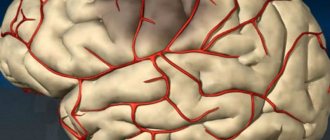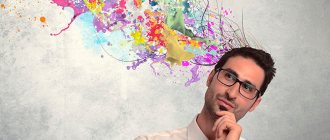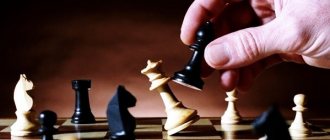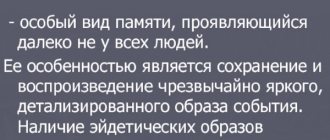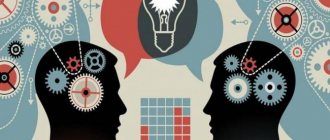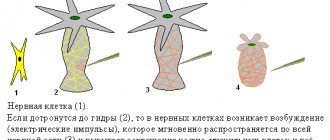What it is?
Analytical thinking has a close connection with logical thinking. But these concepts are not identical. The main difference is the following: analytical thinking is based on analysis, comparison and synthesis of the data obtained , and a distinctive feature of logical thinking is the search and establishment of cause-and-effect relationships.
Analytical thinking is based on two processes. The first process is creative. Its essence is the search for new information and knowledge. The second process is formal. It is based on the analysis and synthesis of data, on consolidating certain conclusions in the mind. A distinctive feature of the formal process is its close relationship with the laws of mathematics and physics, according to which everything material has common properties that have similar characteristics and structure.
The essence of the creative process is that it is responsible for creating new, previously unused means of studying the world around us. The task of the analytical type of thinking is to systematically and comprehensively consider questions and problems posed by objective criteria.
At the same time, this style is characterized by a methodical and thorough manner of working with problems and difficulties, focusing on details.
The video contains 5 riddles to determine your thinking. If you have an analytical mind, these will be easy for you:
Analytics and people
Some people have good analytical skills from childhood. This is due to the fact that the left hemisphere of their brain is dominant over the right. It is what is responsible for this type of thinking. But those who are not inclined to analytics from birth should not be upset, because... When performing certain exercises, analytical capabilities will quickly increase.
Analytical thinking is responsible for several important points:
- Detailed analysis of current events, as well as various phenomena;
- Determining prospects and all subsequent events from certain actions;
- Construction of logical chains;
- Identification of advantages or disadvantages in any phenomena;
- Ability to separate major details from minor ones;
- Solving everyday problems or tasks;
- The ability to reason correctly and express thoughts;
- Correct time planning, maintaining work sequence;
- Clarity of any logical conclusions;
- Making the right decisions.
People with well-developed analytical skills are very effective and easily achieve any goals. It is much easier for them to communicate with others, they can boast of good logic and observation, which seriously helps in everyday life and work. Calculating any task several steps ahead is the simplest task for such a person. It is these benefits that make people think about ways to improve themselves.
Analytical thinking is closely related to critical thinking. When combined, both types become even more effective. They give a person the opportunity to objectively assess what is happening around him, quickly find solutions, and also see shortcomings where others do not notice them. They often actively interact with logical thinking, which allows them to find patterns, anticipate future events in advance, and clearly justify their position on any issue. Their combination makes a person very smart.
Why do you need to develop?
Analytical thinking is necessary for:
- developing the ability to quickly determine the main and secondary issues in a problem;
- solving difficult life problems;
- solving professional problems;
- searching for the pros and cons of current events;
- identifying opportunities and limitations;
- developing the ability to analyze the experience gained;
- dividing large tasks into separate small blocks.
In everyday life, you also cannot do without analytical thinking. It helps both in studies and in professional activities.
However, I would like to note that “before moving forward, analysts look to the past, studying cases that have already happened. But to innovate, companies need to develop a better sense of the customer, come up with creative solutions to problems, and constantly modify ideas.” states business theorist Roger Martin in an article on RBC Pro.
How to develop?
There are several ways to develop analytical thinking.
- Once a week you need to do exercises to train your mind. For example, you can solve crosswords, play logic games, and solve puzzles.
- Play educational computer games . These could be quests or strategies.
- Watching the news is very useful. Do not take the news from a critical point of view, conduct your own analysis, compare facts, draw conclusions, come up with ways to solve problems.
- Read more books. Pay attention to detective stories and science fiction. Read works by Earl Gardner, Agatha Christie, Robert Heinlein.
- Solve codes and ciphers. This can be done by playing computer games.
- Collect puzzles. They train the mind well.
- Play board games. You should choose those games where you need to think through your actions, develop tactics and build strategies, for example, Monopoly.
- Play online games. For example, in Erudite.
- Look for an alternative . If you find a solution to a problem, don't stop at one, look for other ways.
- Discuss books, films with other people, exchange opinions and impressions.
- Be interested in the world around you. Analyze everything that interests you.
- “5 Whys” technique. You need to see the root of the problem, turn on your thinking and ask yourself why it happened this way and not otherwise?
- Game "Argument-Counterargument" . You are required to write down on paper beliefs that you do not doubt. Support your point of view with arguments. For each of your beliefs, try to find ten counterarguments and justify them.
- Experiments . Imagine that you are a scientist looking for information to conduct an experiment. Write down your thoughts about what arguments to give for and against your theory, what methods can be used to make the experiment a success. Identify several alternative scenarios. Study each of them in detail, determine all the pros and cons. Give reasons for your point of view. Choose the best option.
- Reading articles . Read about 100 articles on different topics. This will help broaden your horizons. After reading, you will have several different opinions on a specific issue. Thanks to your new knowledge, you will be able to successfully debate on various topics, competently justifying your arguments.
- Observations . If you are in a group, analyze what is happening in the room. Observe people, their communication, gestures, emotions. You will learn to notice people's moods and draw logical conclusions about their behavior, which will help you build relationships easily and quickly.
SWOT technique
It can be used in two ways. The first is designed to unite the team to develop a strategy. In the second case, the method is a tool for complex problem solving.
The advantage of the technique is that you can develop a full-fledged strategy rather than focusing on just one problem.
Ask yourself questions about your strengths:
- What are your strengths?
- What do you do better than others?
- What do others think about your strengths?
Answers to these questions assess your ability to develop analytical thinking.
Flaws. Ask yourself questions:
- What can you improve in yourself?
- what should you avoid?
- What shortcomings do others see in you?
This last question is especially important because an outside perspective can help identify problems you may not have thought about.
Possibilities. Ask yourself:
- What are you capable of now?
- How can you transform your shortcomings into advantages?
- What do you know about popular trends in training and mindset development?
Threats. Answer the questions:
- what threatens you?
- will your skills be useful and applicable in five years?
- can technological progress harm you and your career development?
- do you have debts?
Answer all questions truthfully. Analyze your answers and draw conclusions.
Development exercises
We offer you four effective exercises.
First: modeling the situation. You must imagine a situation, model one or more goals, and develop a way to achieve it. For example, your goal is to fly to the moon. In order for the goal to be realized, you will have to undergo training in the space program, find money, and buy a ticket for the tour. Start developing this idea and analyze possible options.
The second exercise is also based on modeling a situation, but it works a little differently . First, imagine some difficult situation, and then try to find a solution to the problem as quickly as you can. Play out different scenarios in your head. When the situation is formulated, analyze it, think about how it could develop in the future.
The essence of the third exercise is that you need to conduct a series of thought experiments . They should be based on the question “What would happen if...?” For example, the “Mary’s Room” experiment. Imagine yourself as a smart and capable researcher. You are in a room with special glass installed. Through them you see the world in black and white.
You know what colors exist, you know about light waves. But the knowledge is only theoretical. You've never been outside and don't know what the world around you is like. Imagine what will happen if you do go outside? Can you figure out which color is which? The point of the task is that you must analyze the situation and work out options for color recognition.
And the last exercise. You will need the help of your friends. Start arguing with your interlocutor on a specific topic. Listen to your opponent's arguments, analyze them, and then use them in your monologue so that no one present understands who is the author of the arguments - you or your opponent. This way you can practice your ability to analyze other people's opinions.
Recommendations for every day
- To be able to competently analyze events in your life, try to systematize your life;
- try to see patterns in everything;
- develop habits that will help develop your brain, such as doing mental math;
- while watching films or reading books, try to imagine yourself in the shoes of the characters, compare their actions with those that you yourself would do;
- analyze your thoughts and actions;
- try to learn from your own and others' mistakes.
If you consider yourself very erudite, you might be interested in finding answers to scientific questions , such as:
- Is a person, in principle, capable of being objective, and if so, in what life situations?
- Does man have free will, or is he something like a programmed being, and is not even aware of it?
- What actually gives each of us the right to claim that he and the world around him are real and not illusory?
- For what reason is the human brain a collection of atoms, but consciousness, which is considered a product of the brain, has nothing to do with atoms?
Even today there are questions that no one can answer: neither philosophers, nor scientists, nor ordinary people. By thinking about questions, you will force your brain to work at full capacity.
Useful books
- Samantha Kleinberg - “Why. A guide to finding causes and making decisions." A Guide to Finding Causes and Making Decisions” is written in quite accessible language. It can be called instructions for making important decisions, which will help you at a crucial moment both in life and in work. This guide to improving your analytical thinking will teach you how to get the most out of information and understand the essence of problems.
- Jones Morgan - “Problem solving using intelligence methods. 14 powerful tools."
- Dmitry Chernyshev - “How people think.” The book tells us about creative thinking. In this case, the key word is thinking, which in itself is creativity. Everything new and incomprehensible is quite interesting. It gives food for the mind and makes it work. And the techniques proposed by the author will help you process information and come up with fresh ideas. Today Dmitry is the creative director of an advertising agency. For 15 years now, his work has been associated with the continuous generation of ideas.
- Roger Sipe - Brain Development. How to read faster, remember better, and achieve bigger goals . The book will teach you to read thoughtfully and set records in any field. The content of this book combines several aspects - the development of thinking and intelligence, strengthening memory, energy management and speed reading. As you read, write down your thoughts and practice with the author's examples to become a top brand manager.
- Richard W. Galland - The Puzzles of Sherlock Holmes . The book will teach you using deduction (developed analytical thinking) to solve complex problems. Explore events with the greatest detective of all time! Here you will find secrets and puzzles of all kinds - from simple cases to the most complicated cases that even Holmes found difficult.
- Matthew Macdonald - Train Your Brain to Work . The book combines scientific work and a very popular guide. The author writes about the cellular tissue called the brain. This organ is responsible for thinking and everything that happens to the body. He makes us fall in love, wake up in the morning and do crazy things. This work brings together the latest discoveries of neuroscientists, psychologists and nutritionists. Effect? This is an excellent guide for thinking people with an analytical mind, which gives them a lot of advice - from eating wisely to strengthening their ability to remember.
- Ryuta Kawashima - “The Japanese System for the Development of Intelligence and Memory . His special program is designed for 60 days of training and has helped 2 million people become successful. Having a healthy and well-functioning brain is not as difficult as you think.
- Jan Perelman. The multifaceted book “5 Minutes to Think” perfectly develops cognitive thinking, attention, active memory and imagination. It will allow a person to become smarter and more creative, learn to reason and justify their decisions. The author has collected information here from a variety of fields - from science to linguistics.
- Joel Levy. Book “Charge for the brain. Raise your IQ" will allow you to understand how the brain works and how to improve it. Like the body, the brain can be exercised to improve memory capacity, analytical thinking, and speed of thought. This can be done regardless of age. After all, a strong memory and the ability to be creative won’t hurt anyone. The author offers the reader several IQ tests and identifies weak points that you should train. By regularly performing simple brain exercises, you can improve your potential, increase concentration, develop sociability and memory.
- Philip Carter - "Develop your intelligence: Exercises to develop creative thinking, memory, intelligence and intelligence . A collection of exciting puzzles, charades, logic problems and the latest tests. The book will be useful entertainment and training that keeps your intellect in good shape. Intended for the widest audience.
- de Bono - "Six Thinking Hats" Edward de Bono's book is one of the best works on the development of intelligence. The author has developed a methodology for teaching non-standard thinking. The ability to think in an original way is characteristic of people of a creative nature, but it turns out that the ability to be creative can be developed. Bono's style of storytelling is unconventional - he offers scenarios, and the reader must choose a plan of action in the proposed situation, that is, his “thinking hat.” This book is a game and an adventure, it is interesting to work with it.
Food for the brain
As you develop analytical thinking, it is important to pay attention to nutrition. There is food for the brain, which helps the functioning of the main organ of the body and stimulates its work. Moreover, mental work always requires a lot of energy expenditure, and it is important to replenish these costs correctly. The brain needs a lot of glucose. Other foods that improve brain function include:
different types of nuts; chocolate, but only bitter; dried fruits; berries (blueberries, cranberries); lemon; beet; spinach; fish from the salmon family; White cabbage.
In addition, for the normal functioning of the body, including the brain, minerals and vitamins are required. First of all, we need: boron, calcium, magnesium, zinc, iron. It is important to monitor your diet and maintain balance. This will help the brain work properly and perceive information. Replace sugar with complete carbohydrates, eat more protein, and as little fat as possible.
Development of analytical thinking in a child
To develop your child’s analytical skills, teach him a simple algorithm: see a problem, then look for ways to solve it, and then choose the most rational option.
At the age of 3 years , the child’s memory and attention are involuntary processes. To impart basic skills and abilities into a child's head, do it in a playful way. Introduce games gradually (no more than 2-3 in one period), be sure to start with the simplest ones. When your child masters the game, you can solve tasks with him, but at speed.
Until the age of 4-5 years, a child’s thinking is based on sensory development. During this period, he should receive a lot of sensations, tactile and visual. The more sensations a child receives, the wider his horizons will be. Show him color pictures, ask him what colors he sees. Prepare him a variety of foods and observe how he feels.
At the age of 5-7 years, the child begins to consciously use analytical thinking. It is sometimes necessary to offer him a situation in which he must apply his skills. Handicrafts and creativity will help develop perseverance, for example, you can take up drawing or assembling a construction set.
Until the age of 7, a child remembers the example of his parents very well. Do something useful and the child will repeat after you. Teach your child to plan time wisely. This will develop self-discipline in him. If you are late for school, go for a run to get there on time. The child will analyze the situation, understand the reason for the rush and will continue to behave punctually.
Read books to children. It is important not only to read, but also to discuss them, ask what new things the children learned and what conclusions they drew.
Play games with your child. For example, ask riddles. They develop thinking very well. Teach your child tongue twisters. You can ask him to speak a tongue twister in a short time. This method improves and develops memory, helps concentration.

